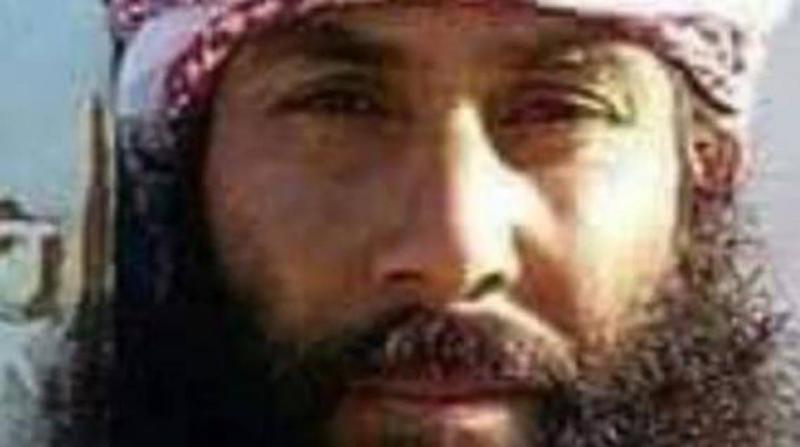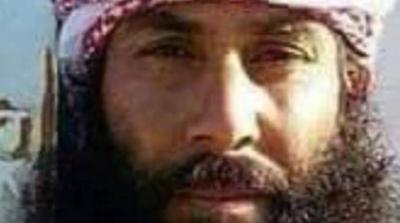Following the announcement by U.S. President Joe Biden regarding the official death of Abdullah Qardash, the leader of ISIS and successor to the previous leader Abu Bakr al-Baghdadi, in an airstrike in a Turkish-controlled region of Syria between Idlib and Aleppo, the pressing question has become the future of the organization and who the potential successor to Qardash might be. His death occurred just a few kilometers from where Abu Bakr al-Baghdadi was killed in late October 2019.
In response to this operation, military and security analyst Ihsan al-Qaysoun emphasized that the death of the ISIS leader will have "negative implications for the combat morale" of the dormant cells of the organization operating in Syria and Iraq, particularly under the orders of their local leaders rather than the first-tier commanders of the organization.
**Dormant Cells' Activity**
He stated to "Al Arabiya" that "all the roaming groups of the organization between Syria and Iraq, known as sleeper cells, have become thread organizations, meaning they carry out attacks under the orders of their local leaders without direct communication with the top leaders of the organization, and therefore, Qardash's death will have a moral impact on the movements of these sleeper cells."
He added that "ISIS is a clear source of evil, and the region will suffer from it for decades to come due to the failure to address or eliminate the causes of its spread, such as corruption, poverty, sectarianism, marginalization, and exclusion. Therefore, it cannot be eradicated merely by getting rid of its leader. It is an armed ideological organization that is intellectually extremist, and hence it should be confronted with an ideological war against corruption, poverty, and abhorrent sectarianism."
**Jabbar Salman al-Eisawi**
Regarding the potential successor to Qardash, the military and security analyst pointed out that "al-Eisawi" is the most prominent candidate to lead the organization, noting that his full name is "Jabbar Salman al-Eisawi," born in 1982 and hailing from the city of Fallujah in Anbar province. He added that the organization had previously named a potential successor by the name of Hashim al-Juraisi, but al-Eisawi's name, being a first-tier leader of the organization, is circulating currently.
He pledged allegiance to al-Zarqawi, explaining that al-Eisawi is one of the first group members who joined al-Qaeda in 2006 and participated in the second battle of Fallujah, but he did not declare his allegiance to al-Baghdadi.
**Background and Current Status**
Furthermore, al-Eisawi is one of the prominent field leaders qualified to assume the leadership of ISIS, and because he is known as al-Eisawi, he belongs to the Arab al-Bu Aissa tribe present in Anbar province and its rural areas. He had previously been trained in the manufacturing of explosive devices and how to plant and detonate them by the individual known as Ali Ismail al-Kuwaiti.
Although there were reports of his death several years ago, the information available to us indicates that this is not true and that he is still active within the organization. He is also known by the name Abu Yaser al-Eisawi, and he is careful not to appear even on the organization's media platforms, yet there is one known image of him that has been published on some news sites.
**Possible Disputes**
He also suggested that a dispute may arise among the first-tier leaders of ISIS should they not reach a consensus on "al-Eisawi," which could lead to a split in the organization. He further revealed that "ISIS fighters now belong to the third and fourth generations, those who form the sleeper and roaming cells, while the first and second generations are those who belong to the Sharia and Fatwa authority, including Sharia judges, who are responsible for distributing funds, managing the organization, and overseeing combat operations. Therefore, the existence of a caliph has become a symbolic matter."
**Adaptation to Leadership Loss**
Jassim Mohammed, director of the European Center for Counter-Terrorism Studies and Intelligence, agreed with Qaysoun about the organization's potential loss following the death of its leader today. He stated to "Al Arabiya" that "the death of Qardash will undoubtedly have negative repercussions on the structural dynamics of the organization, but the issue lies in that extremist groups, particularly ISIS, have adapted to the loss of their leaders."
He added that "Qardash's death will have operational implications in terms of losing funding and recruitment sources, thus we will face a temporary regression of the organization before it returns to strengthen its capabilities, despite the fact that the operation carried out by U.S. forces was a significant one, planned well, and came after the withdrawal of the international coalition following ISIS's attack on Hasakah and Ghweiran prison."
Another military and security analyst remarked that "the question of who will be the successor to Qardash may not be relied upon much in terms of the organization's declining activity, especially since it has been operating in a decentralized manner recently," noting that unexpected clashes occurred lasting for days between the Syrian Democratic Forces and ISIS elements in a prison housing thousands of ISIS fighters in Hasakah province.
**Striking the Backbone of ISIS**
Amir al-Sbaileh, a security and military analyst for "Al Arabiya," stated that "the strike dealt by Washington against ISIS, which resulted in the death of its leader, aims to send a direct message to the organization indicating its ability to target it and prevent its potential resurgence, especially after the events in Hasakah prison, where we witnessed a significant return of the organization not only in Syria but also in Iraq and Afghanistan."
He added that "this strike targets the organization morally and aims to prevent it from moving between multiple regions and carrying out complex operations, as Qardash's death effectively serves Washington and its allies, especially given that ISIS has strengthened its power and returned prominently to the scene recently, thus the operation can be described as striking the backbone of the organization during its new rising journey, which means hindering this return, but undoubtedly today ISIS is different from what it was before."
**A Decentralized Organization**
Al-Sbaileh also speculated that there may not be significant issues among the leaders of the organization regarding Qardash's successor, as it has become a decentralized organization in recent times. However, it may exploit the airstrike that killed its leader to wage what is referred to as jihad against America and its allies.
It is noteworthy that Qardash was killed during a U.S. operation late Wednesday to Thursday in the town of Atma in northwestern Idlib, where the ISIS chief detonated himself and his wife with a bomb at the onset of the operation. However, the engagement between the organization's elements and U.S. special forces continued for two hours afterward.




